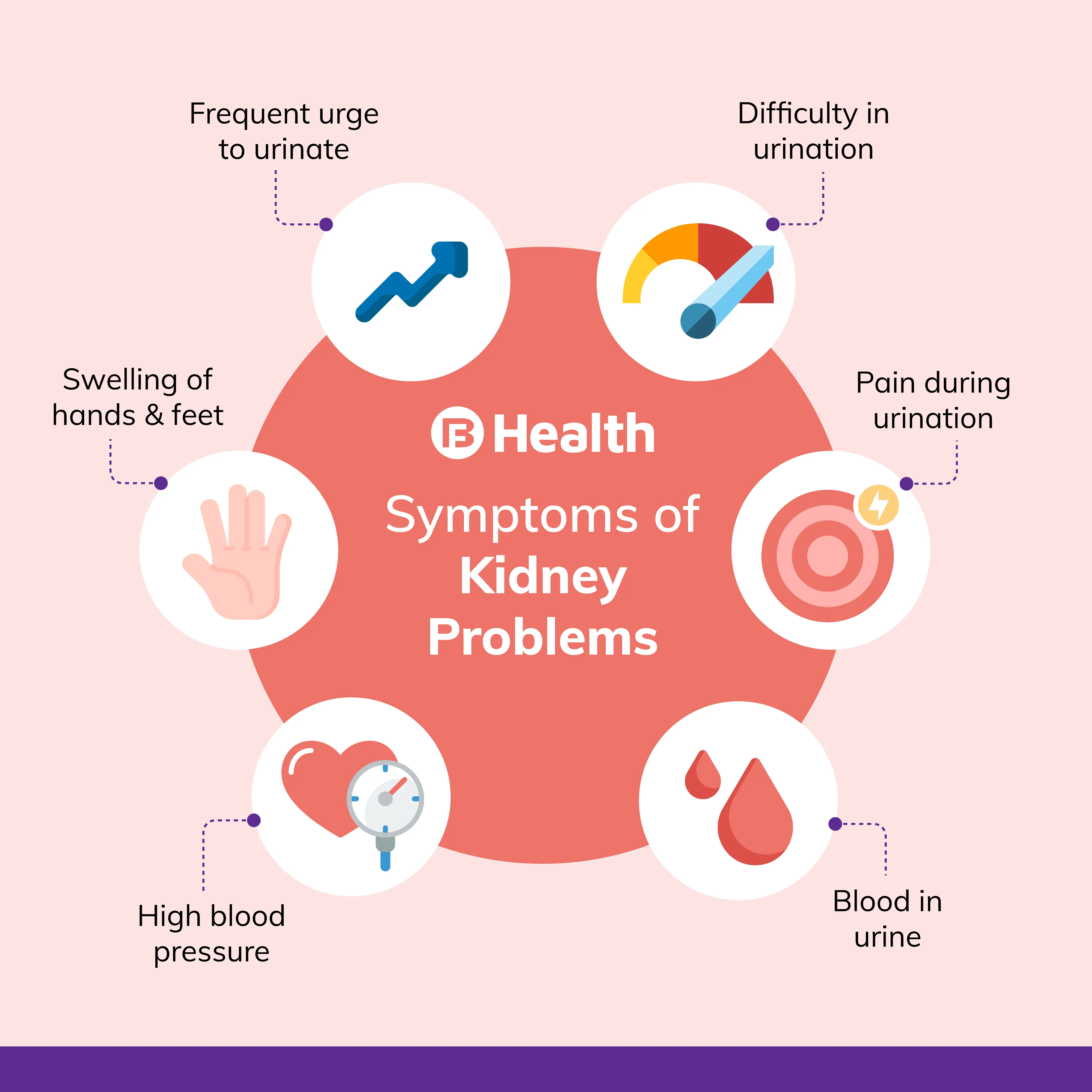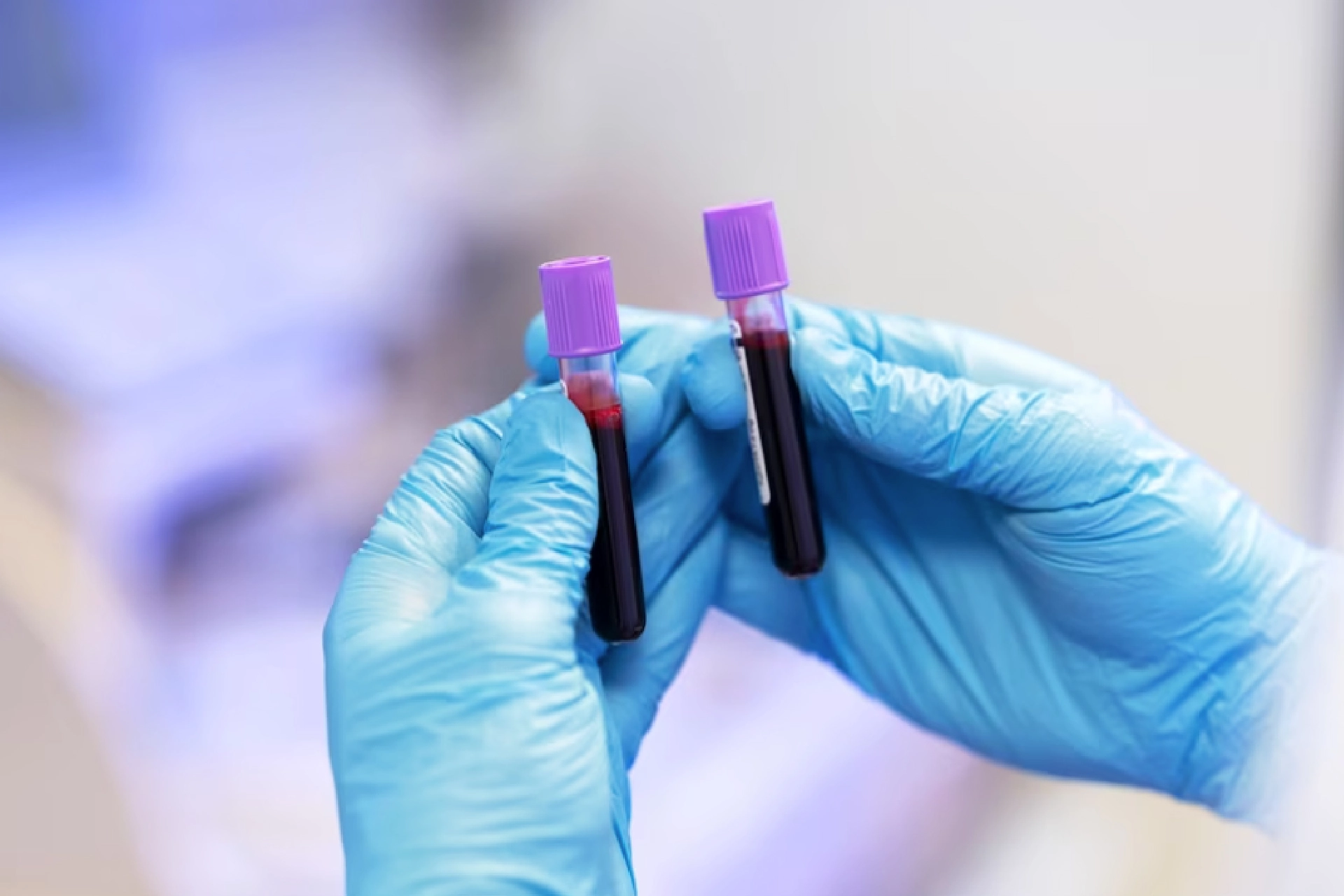Health Tests | 5 min read
Symptoms of Kidney Disease and 6 Common Types of Renal Profile Tests!
Medically reviewed by
Table of Content
Key Takeaways
- Around 10% of the world population suffer from chronic kidney disease
- A renal profile test helps determine various problems in your kidneys
- It is important to know the types of renal profile test to monitor your kidneys
A renal profile test is a group of simple blood and urine tests to evaluate kidney functions. Also known as the kidney panel or kidney function test, it identifies problems in your kidneys [1]. This test for kidney problems measures substances including electrolytes, minerals, proteins, and glucose to determine kidney health.
Around 10% of the world population suffers from chronic kidney disease and millions succumb to this condition due to lack of access to treatment. Research suggests that cases of kidney failure will increase in developing countries like India [2]. A timely renal profile test helps in preventing these fatal conditions by identifying kidney problems early. Read on to know about the different types of renal profile tests.
Additional Read: 7 Common Types of Blood Test You Should Know About!Types of Renal Profile Tests
A renal profile test includes several types of blood and urine tests. Read on to understand the renal function tests’ normal values and their significance.
Glomerular Filtration Rate (GFR) Test
The glomerulus is a cluster of looping blood vessels in nephrons, the blood filtering units in your kidneys. Blood is continuously filtered through this to allow water and small molecules to pass but retain blood cells and proteins. The glomerular filtration rate is the rate at which substances in plasma are filtered through these tiny filters. This renal profile test measures how much blood your kidneys can filter every minute. A normal GFR should be 90 to 120ml per minute. A GFR below 60ml per minute is a sign of kidney disease.

Albumin Test
This is a urine test that measures the amount of albumin. Albumin is a protein found in your blood. It helps keep fluid from leaking out of the blood vessels, and transports vitamins, calcium, and hormones in your body. Damaged kidneys let pass albumin into the urine. If you have a higher amount of albumin in your urine, it may be a sign of kidney problems. Urine albumin below 30 is considered normal. Albuminuria is a term used to refer to abnormal albumin in the urine.
Serum Creatinine Test
Creatinine is the by-product of creatine phosphate, a high-energy molecule in muscles that are continuously produced and filtered out by your kidneys through blood. In other words, it is a waste product from the wear and tear of muscles in your body. If the clearance of creatinine by your kidneys decreases, its quantity in your blood increases. A serum creatinine test is a blood test that determines the presence of creatinine in your blood. A high level of creatinine may indicate kidney problems. The creatinine level should not be above 1.2 mg/dL for women and 1.4 mg/dL for men [3].
Blood Urea Nitrogen (BUN) Test
Urea nitrogen is a substance produced in the liver from the breakdown of the protein you consume and the urea cycles. Your kidneys excrete around 85% of urea and the rest is removed through the gastric tract. A BUN test measures the amount of nitrogen in your blood. If you have a problem with kidney function, there will be a rise in blood urea nitrogen. In some cases, the urea nitrogen may increase due to other problems like a high protein diet and dehydration. The normal level of this renal profile test is between 7 and 20 mg/dL.

Electrolyte Test
Electrolytes are electrically charged minerals that facilitate several body functions. Some examples include sodium, potassium, chloride, and bicarbonate. These minerals in your blood and body fluids help regulate fluid in the body, maintain the balance between acid and base, and support nerve and muscle function. An electrolytes test measures the electrolyte levels that help determine kidney function. The normal range for this renal profile test differs based on your age and gender.
Urinalysis
This is done to identify if protein and blood are present in your urine. It includes microscopic examination of a urine sample and a dipstick test. The dipstick test involves dipping a chemical strip into your urine sample. If there is an excess of protein, blood, sugar, or bacteria, the strip changes its color. The test helps determine kidney and urinary tract disorders such as kidney disease, kidney stones, diabetes, and bladder infections. However, protein in the urine may increase for various other reasons including a heavy workout or an infection.
Additional Read: Urine Test: Why is it Done and What are the Different Types?Now that you know normal range of kidney function tests, you can monitor your kidney health and decide when to consult a doctor. If you experience any symptoms or have conditions like type 1 and type 2 diabetes and hypertension, testing for kidney disease can become beneficial. Using Bajaj Finserv Health, you can book a renal profile test as well as go for an in-clinic or online consultation with the best nephrologists. Take good care of your kidneys and overall health by consulting with doctors and following their recommendations without failure.
References
- https://labtestsonline.org.uk/tests/renal-panel
- https://www.kidney.org/kidneydisease/global-facts-about-kidney-disease
- https://www.kidney.org/atoz/content/kidneytests
Disclaimer
Please note that this article is solely meant for informational purposes and Bajaj Finserv Health Limited (“BFHL”) does not shoulder any responsibility of the views/advice/information expressed/given by the writer/reviewer/originator. This article should not be considered as a substitute for any medical advice, diagnosis or treatment. Always consult with your trusted physician/qualified healthcare professional to evaluate your medical condition. The above article has been reviewed by a qualified doctor and BFHL is not responsible for any damages for any information or services provided by any third party.




